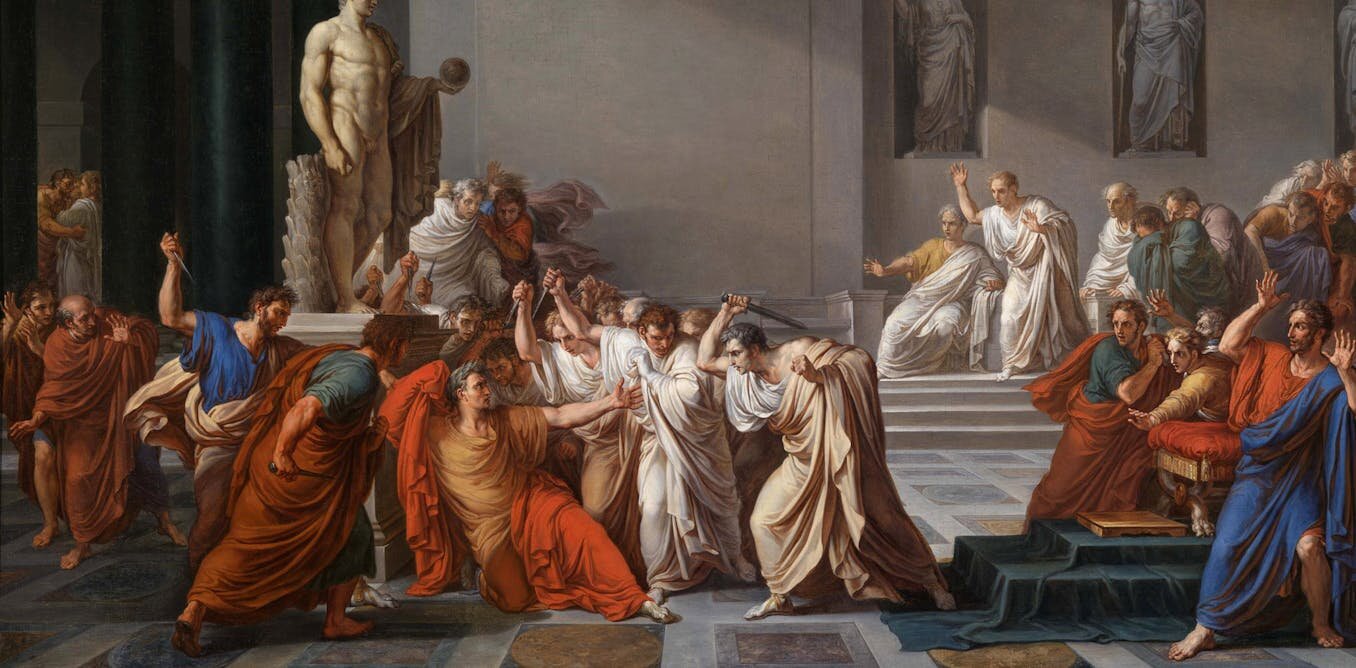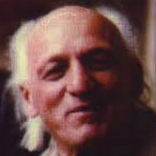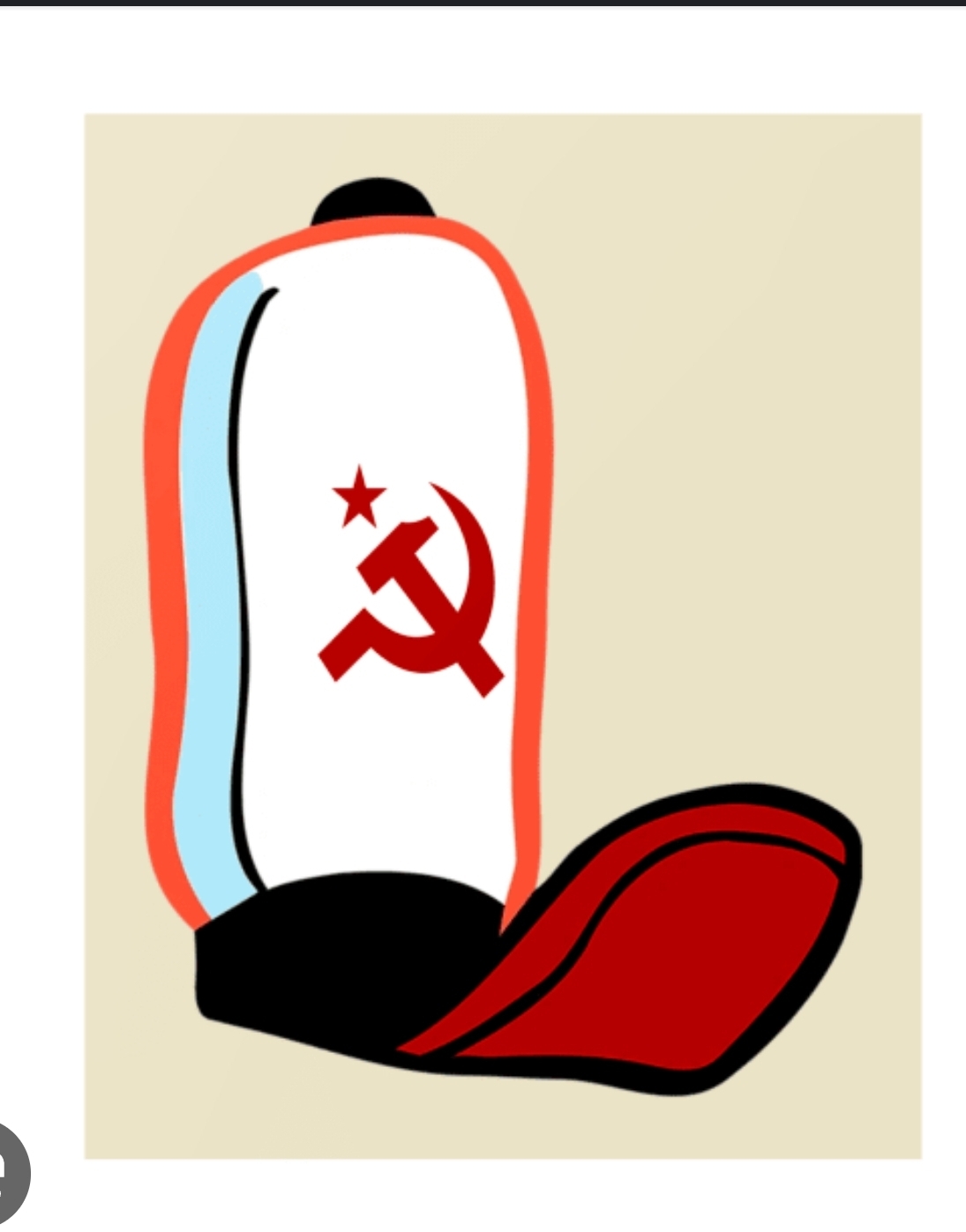I joined Turchin and a few others who were establishing a new field—a new way to investigate history. It was called cliodynamics after Clio, the ancient Greek muse of history, and dynamics, the study of how complex systems change over time. Cliodynamics marshals scientific and statistical tools to better understand the past.
The aim is to treat history as a "natural" science, using statistical methods, computational simulations and other tools adapted from evolutionary theory, physics and complexity science to understand why things happened the way that they did.
![]()
One of the most common patterns that has jumped out is how extreme inequality shows up in nearly every case of major crisis. When big gaps exist between the haves and have-nots, not just in material wealth but also access to positions of power, this breeds frustration, dissent and turmoil.
"Ages of discord", as Turchin dubbed periods of great social unrest and violence, produce some of history's most devastating events. This includes the US civil war of the 1860s, the early 20th-century Russian Revolution, and the Taiping rebellion against the Chinese Qing dynasty, often said to be the deadliest civil war in history.
All of these cases saw people become frustrated at extreme wealth inequality, along with lack of inclusion in the political process. Frustration bred anger, and eventually erupted into fighting that killed millions and affected many more.
![]()
Perhaps one of the most surprising things is that inequality seems to be just as corrosive for the elites themselves. This is because the accumulation of so much wealth and power leads to intense infighting between them, which ripples throughout society.
In the case of Rome, it was the wealthy and powerful senators and military leaders like Julius Caesar who seized on the anger of a disaffected populace and led the violence.
This pattern also appears at other moments, such as the hatred between southern landowners and northern industrialists in the run up to the US civil war and the struggles between the Tsarist rulers and Russia's landed nobility during the late 1800s.
Meanwhile, the 1864 Taiping rebellion was instigated by well educated young men, frustrated at being unable to find prestigious positions in government after years of toiling away at their studies and passing the civil service exams.
What we see time and again is that wealthy and powerful people try to grab bigger shares of the pie to maintain their positions. Rich families become desperate to secure prestigious posts for their children, while those aspiring to join the ranks of the elite scratch and claw their way up. And typically, wealth is related to power, as elites try to secure top positions in political office.
![]()
These patterns probably sound familiar. Consider the college admissions scandal in the US in 2019.
![]()
Donald Trump is only one recent and fairly extreme version of this motif that pops up time and again during ages of discord
![]()
If the past teaches us anything, it is that trying to hold on to systems and policies that refuse to appropriately adapt and respond to changing circumstances—like climate change or growing unrest among a population—usually end in disaster. Those with the means and opportunity to enact change must do so, or at least to not stand in the way when reform is needed.
![]()
Not an original thought seeing as what's already been posted in this thread, but it's so annoying to read this person act like they've discovered some new methodology for studying history and not give credit to the people who pioneered and then refined this kind of analysis.
They'll also refuse to follow this analysis to its logical conclusion.
First thing I did when I opened the tab was Ctrl-F "Marx" and went hoo boy at the
0 results
Especially with the conservative and radlib sentiment that Marxism and communism is just old, dead white men. With conservatives it’s expected and I don’t really care, but with liberals, they claim to be progressive but don’t give a shit or never credit the non white, non men who contributed to Marxist analysis. In their minds, there only exists Marx, Stalin, maybe Mao, and Chomsky.
An evergreen genre of article is credulous academic libs re-discovering the ideas of historical materialism but without ever giving credit to Marx or ever connecting the data they collect into a broader analysis.
as far as yankee education is concerned, Lenin, Marx, Mao, Stalin, and sometimes Castro all worked together to publish a three hundred page book that just reads "Guillotine anyone who has a larger lawn than you," over and over in various languages, fonts, and permutations. It's not really their fault that they get this far into a research project without thinking, "Huh, this sounds a bit familiar". Pedagogogog-ical-ee, it's tera nova.
i like that the study where some libs accidentally discovered imperialism and came up with some new name for it like 'unequal exchange'
Ah, the hitherto historians have only sought to understand history. The point is to make it 😏
How the fuck does an academic study history in any serious way without trying to gather and use this kind of data? If you're not doing historical materialism what the fuck even are you studying?
lots of history people just get really into memorizing dates and 'stories' where they pick some arbitrary window of time and use it to tell a shoe-horned narrative that propagates their worldview
Every time I learn something about how a topic of interest of mine is formally studied I am reaffirmed in being a guy that just reads every book ever instead of wasting my money on higher education.
The more you learn about academic "historians" the more you learn how little they know how to apply their own field's methods to topics they don't like and how incapable they are of seeing their own biases. They understand great man history is wrong and absurdly incorrect, except when it comes to socialist states, then it's all "Evil Stalin did this" or "Totalitarian dictator Mao did that" No understanding or analysis that they apply to every other state in history. It's like their brains short circuit.
I love when western historians invent exotic names for things Chinese states did that every other state did too but it's completely different because they're inscrutable orientals
Hitler failed art school. As a result, Hitler made good speeches because he was mad. His speeches inspired people to commit atrocities. Also, he was secretly gay and had 1 testicle and we should kill him as a baby if we ever get a Time Machine. It’s that simple.
When I'm in charge of what information is suppressed, Hitler being a failed art student is top of my list or close. It seems to be the thing all lives fall in love with.
Why not abduct him and baby Stalin, so we could have a dictator boxing show?
Idealism is the predominant mode of history taught in schools and universities.
Damn that was painful read if you can apply at least some historic materialism.
Their solution is basically still charity, "healthcare please" and the trust the capitalist elites will do the right thing, suddenly.
But we also are in a unique position, because we know more about these forces of destruction and about how they played out in the past than ever before. This sentiment serves as the foundation for all of the work we have done compiling this massive amount of historical information.
No, you bloody hacks, you don't know more, and even more importantly, you do not come at this with good will and honest effort, like for example the part about good reactions for Covid did not included any mention of China. You are just burgeoisie inteligentsia dogs the exact same as the ones who for decades hide the data about climate, plastics etc. and even in the face of "polycrisis" can only look at the godly distant faces of your masters and very quietly plead for mercy in packages of size reasonable and agreeable with "polycrisis" stage capitalism.
One of the fascinating by-products of the Liberal "end of history" mentality is that they believe that the collective "west" know more about every topic than older/other societies. They cannot fathom that western capitalist society doesn't have all the answers and omits and censors information on topics that contradict the western narrative because...the capitalists just say they don't?
These are the same people who would invoke 1984 in every article they write about China. Maddening stuff.
Jaded Liberalism is just rebranding Marxist theories. I’m convinced you’ll never be able to bring communism to Americans without calling it something like “The Libre Theory of Financial Freedom and Coercion”
don't worry they'll recommend some means tested reform package that's impossible under capital dictatorship and then go back to their old lib beliefs
They shut their eyes and close their ears to the logical conclusions
Marxism is taught in undergrad, why are y'all acting like these academic historians never heard of Marx?
Here is one of the founders of cliodynamics briefly talking about Marx https://peterturchin.com/the-left-case-against-open-borders/
Lucky you. Definitely not the norm in the United States.
As the readers of my blog know, the opinions I express here are strictly non-partisan and non-ideological. My main interest is to go where science leads. Ideological thinking is different from science in that in science data triumphs over theories. Ideologues, on the other hand, can ignore or twist facts to suit their theoretical predispositions (see, for example, An Anarchist View of Human Social Evolution).

The main problem for Marx and Engels, I now tend to think, was that they worked with a very limited empirical material (for example, they didn’t have the Seshat Databank!). I now acknowledge Marxian contributions to the structural-demographic theory (together with other important thinkers, such as Malthus, Durkheim, Weber). Furthermore, I found ideas from a number of contemporary Marxian thinkers to be useful in illuminating various aspects of how our complex societies function.
Malthus and Marx definitely equals
As the readers of my blog know, the opinions I express here are strictly non-partisan and non-ideological. My main interest is to go where science leads. Ideological thinking is different from science in that in science data triumphs over theories.
 I FUCKING LOVE SCIENCE!!!
I FUCKING LOVE SCIENCE!!!Admittedly I don't know if Marx is taught to history undergrads. I took sociology where Marx is considered one of the founders so he was mentioned at least in passing in most of my classes.
But Marxism is significant historical approach so I'd be surprised if his ideas weren't mentioned to undergrads.
My first introduction to Marx (beyond reading a bit of Capital in high school because it seemed transgressive) was from my friend studying history in university.
He will be mentioned, but the only people who actually read any Marx or Marxist thinkers past the Manifesto (not even excerpts from Capital) is anthropologist and sociologist undergrads and grads, and philosophy PhD students who are specifically trained in learning and reading about Marx and Marxist history. Sovietologists used to be basically historians that read Marx, but all of those postgrad programs were financially scuttled in the 90's.
My point is, based off of reading what they have wrote, they have heard of Marx, but they have 100% never actually read any Marx or Engels and have absolutely no idea what they are talking about about when it comes to the philosophy of historical materialism, the data that was used to support these theory, and the general amount of economic revelation that they were at the time, even to non-revolutionary Marxist thinkers. To these guys, Marx is a footnote in history, as opposed to what he really is, one of the foundational and most important structuralist thinkers of the 20th century, whose descriptions and predictions of economic trends have been the only ones to play out from that time period.
I'm not sure anyone is saying that the writer has literally never heard of Marx. Just that they've written an entire article as if they've just discovered this new way of thinking about the world, they literally say
establishing a new field—a new way to investigate history
without acknowledging Marx and Engels' already did exactly what they describe, 150 years ago. They're just copying it, snipping out the conclusions, and saying "instead, reformed capitalism"
Marxism isn’t taught in undergrad broadly. It’s usually a popular and established framework within sociology and anthropology departments. But in my opinion, based on the few classes I took for humanities, Marx is mentioned as a footnote or in passing at best, and at worst it’s usually just a slide that says something like “thinkers from late 19th century and early 20th century developed many different models that are still used today”
He'll be mentioned in some sociology classes, but never competently and followed with a mountain of negative connotations
An undergrad in the U.S. can go thru 4 years of college without ever once hearing the name Marx, I was one of them

















